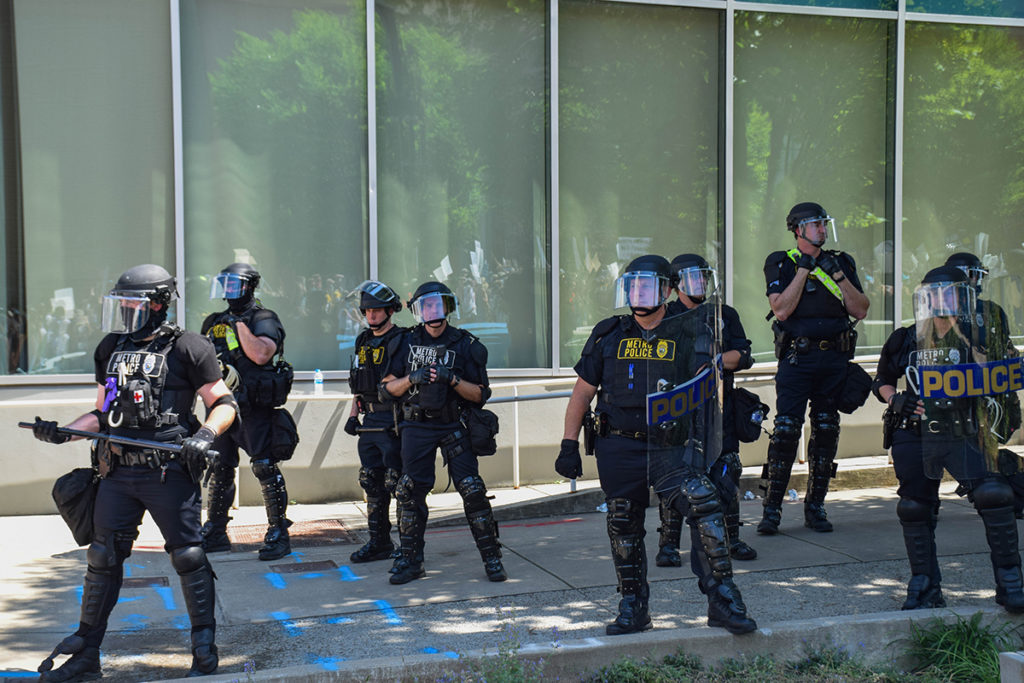
After a month of nationwide protests demanding the end of police brutality and systemic racism, a wave of police policy reforms are starting to flow through Metro Nashville City Council.
But a week ago, a coalition of Nashville organizers said they aren’t interested in policy changes and that they’re committed to working to abolish the police department. That announcement came after councilmembers approved a budget increasing funding for the Metro Nashville Police Department, despite demands to shift money from police and into support for social services.
WPLN News has put together a list of each bill and what changes councilmembers are hoping to make. The bills are at the beginning stages of the legislative process and will go through weeks of discussions before being voted on.
City officials are unsure if the council has the authority to implement two measure: Bills 322 and 323.
Bill 322
Prohibits MNPD from hiring police officers, from other law enforcement agencies, who were previously fired or are currently being investigated for serious misconduct or use of force. If an officer was exonerated they can be a candidate for MNPD.
Examples include:
- Dismissed for wrongdoing or other serious misconduct that calls into question a person’s ability serve as a police officer.
- Resigned or retired from such officer’s position while under investigation for such wrongdoing or other serious misconduct.
- Has a documented employment history showing any of the following: a. Discrimination based on race, national origin, gender or sexual orientation; b. Excessive force; c. Racial bias; or d. Dishonesty related to the reporting, investigation, or prosecution of a crime or the misconduct of another officer.
City officials are unsure if the council has the authority to implement this measure.
Bill 323
The ordinance adds limitations to MNPD’s police use of force policy based on the national advocacy campaigns 8 Can’t Wait and the Police Use of Force Project. It states:
- Officers should use de-escalation tactics such as verbal warnings before using force.
- Officers shouldn’t use any form of chokehold nor stranglehold.
- Any officer who is present and observes another officer utilizing force when it isn’t “reasonably necessary” should intervene to stop the use of unreasonable force.
- Officers should report any use of force against civilians when any civilian is injured, complains of injury in the presence of officers, or complains of pain continuing beyond the use of physical force.
MNPD’s current policy addresses some of this: It already includes a prohibition on a neck restraint and against firing at or from a moving vehicle unless “necessary” to protect someone’s life.
City officials aren’t sure if Council has the legal authority to require the Chief of Police to change department policies.
Bill 329
Prohibits law enforcement officers from using tear gas in the Metro area as a form of crowd control. Councilmember Emily Benedict cites a 22-year-old Ohio protestor who died two days after being exposed to tear gas during a protest.
Bill 330
The bills allows anyone the police approach to ask if their body camera is recording. Councilmember Sharon Hurt says Miranda rights aren’t up to date an era of body camera technology and believes allowing people to ask an officer about their camera could change how citizens engage with the police.
Bill 331
Requires police officers to get implicit bias training yearly.

